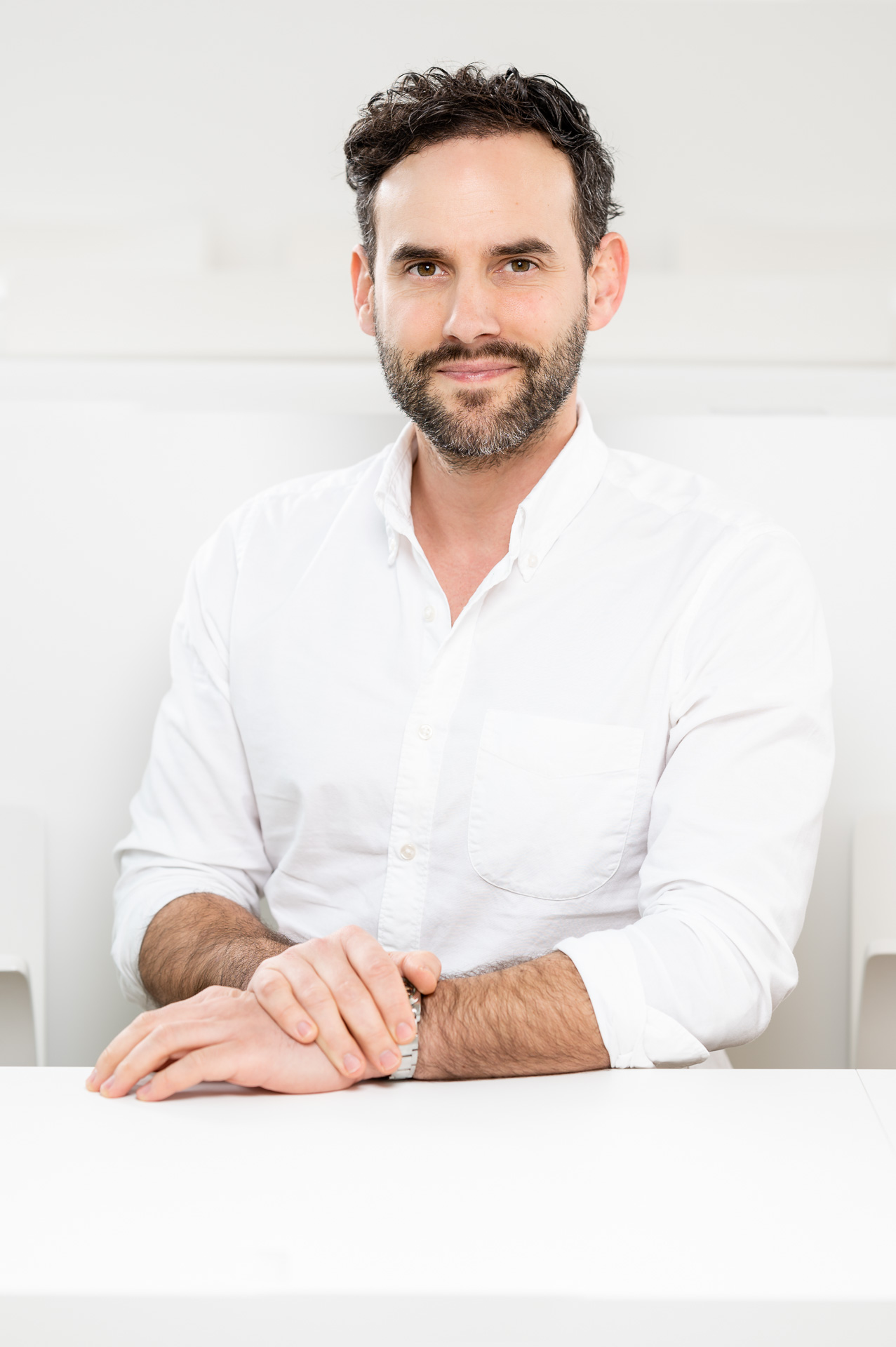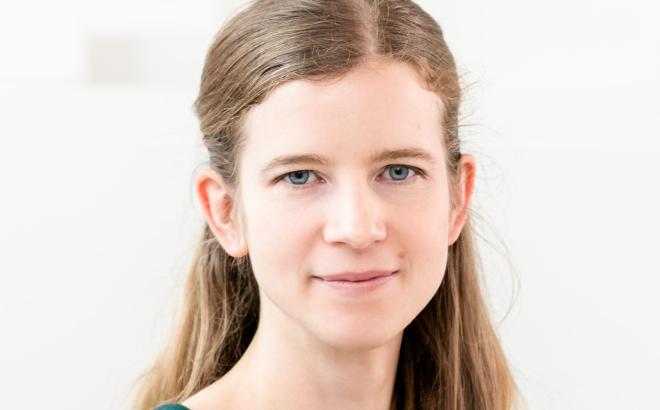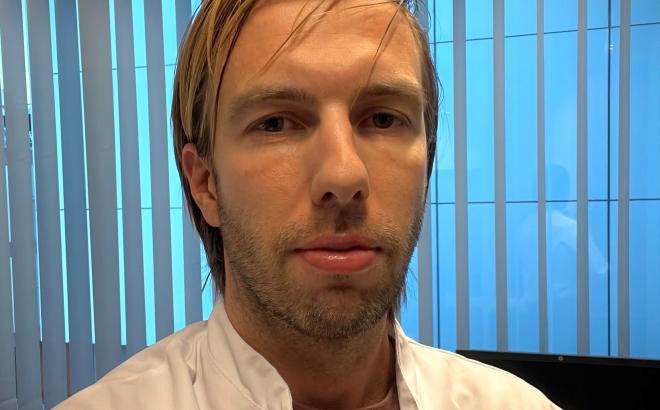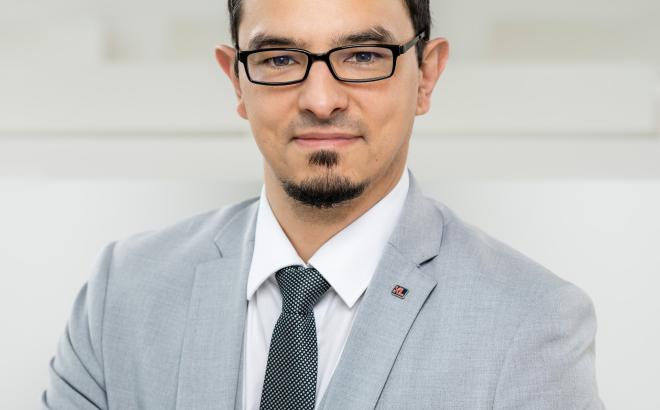Klaus Hackner, Pulmonologist
“As physicians, we are constantly faced with new questions. Research provides the answers.”
Clinical Associate Professor DDr Klaus Hackner is a senior physician at the Clinical Division of Pneumology at Krems University Hospital and a lecturer at Karl Landsteiner University. As a researcher, Professor Hackner’s focus is on the diagnosis and treatment of lung cancer and interstitial lung disease. In addition to other awards and honours, the highly dedicated physician and researcher was twice awarded the Science Prize of the Lower Austrian Medical Society and the Michael Neumann Memorial Prize of the Austrian Society for Pneumology.
Klaus Hackner entered medicine via a “second-chance” educational pathway: “At the age of fourteen, I had no idea what kind of career I wanted to pursue. I opted for a vocational college and began working in the catering industry. Although I especially enjoyed all the human interaction this involved, I began to look around for other perspectives and somehow ended up in medicine. I was soon completely captivated by the programme and, as a physician, interacting with people was and still is one of the most important aspects of my profession”, says Professor Hackner about his decision to study medicine at the Medical University of Vienna (MUW). While still a student, the aspiring doctor quickly found his footing and gained valuable professional experience: He worked at a pharmacy and supplied care homes for the elderly, as well as working as a tutor at the MUW Institute of Anatomy and as an operating theatre assistant at the Speising Orthopaedic Hospital. Klaus Hackner later completed study abroad periods in Chicago/USA and Taipei/Taiwan, and an Erasmus semester in Oulu/Finland. “Being able to explore new perspectives in different environments was very enriching. After graduating, I applied for a post in Vienna. It was difficult to get a clinical rotation position and so as a stopgap solution I applied for a post in my home town of Krems. I ended up staying there and did not go abroad again”, comments Professor Hackner, who has been working at Krems University Hospital since 2011, when he was simultaneously offered a training position at the Clinical Division of Pneumology and a position at the Division of Trauma Surgery. “I originally wanted to become a surgeon, but after switching to the pulmonary division, I soon fell in love with the subject. The head of the division, Primary Clinical Associate Professor Dr Errhalt, the entire team, and the friendly working atmosphere in the division all played a big part in this. Compared to other specialist fields, I can devote a relatively large amount of time to my patients, which is important to me,” says Professor Hackner.
Professor Hackner now serves as a senior physician and mentor for the next generation of assistant physicians and has progressed from the role of junior researcher and “first author” to “senior” in the field of research, but he still continues to embrace new ideas and is committed to interdisciplinary collaboration with other researchers and physicians. He is currently working across multiple disciplines, primarily with rheumatologists and pathologists, which allows him to benefit from the mutual exchange and expand his knowledge and insight: “Whenever I learn something new, I try to consciously acknowledge it. This is a very positive experience, and I would like to instil this kind of mindfulness in students and younger colleagues. Both physicians and researchers need a high level of tolerance for frustration. Not all of our approaches are correct, some of our hypotheses cannot be confirmed, and although there is a lot we can learn from this occasionally strenuous work and negative data, publishing is doubly difficult. Setbacks in treating patients can easily pull the rug out from under your feet. A strong team and a good mentor can help you cope with this”, says Professor Hackner, who appreciates the importance of his boss Professor Klaus Errhalt as a first-class mentor: “Professor Errhalt supported me right from the outset, he talked to me about my career, and we developed ideas together. During my clinical rotation, we were already training dogs to “sniff out” early-stage lung cancer in patients’ breath. The project was successful, and the data was published, although the use of trained dogs in routine diagnostics failed to catch on.”
In 2023, Klaus Hackner completed his doctorate at the Medical University of Vienna. His doctoral thesis was on respiratory disorders during sleep in patients with chronic thromboembolic pulmonary hypertension. In addition to addressing medical issues, he also learned some of the practical aspects of research: How to write an ethics proposal, for example. Or: What constitutes good scientific practice? How do statistics work? How does the publishing process work? How do you write an application for an externally funded research project? Today, the experienced researcher says that research is a bit like music, quoting Miles David: “First you imitate, then you innovate – first you approach research questions in the same way as you have read about in other studies and imitate the methodology, so to speak. You start off as an ‘apprentice’ and over time you become more independent and start going your own way. In-depth training and dedicated mentors are crucial to this development”. Professor Hackner is currently one of the lecturers in the Master’s programme in Human Medicine at Karl Landsteiner University and likes to challenge his students in small group lessons: “We use questions and discussions to analyse connections and causes. It is important for prospective physicians to gain a thorough understanding of diseases, their symptoms, and the underlying mechanisms. There’s nothing better than watching someone experience an Aha! moment. That’s when you know you’ve done a good job as a lecturer.” Professor Hackner is currently involved in establishing a register for diagnostic latency in interstitial lung disease: “We want to raise awareness of these rare diseases in order to reduce the interval before patients are diagnosed. This buys us time. Saving time is also a key issue when it comes to scientific questions about navigational bronchoscopy”, notes Professor Hackner with regard to his future goals. He is also actively involved in various specialist committees and working groups, such as the Austrian Society of Pneumology. When asked how he balances his clinical activities with teaching, research and his work on specialist committees, Professor Hackner smiles: “Research takes time, and you have to go the extra mile. In my case, everything started with a charismatic and highly skilled lecturer while I was still at university. He supervised my thesis on chronic inflammatory bowel disease and invited me to attend a congress in Chicago with him. This kindled my ambition, and during my clinical rotation I made every effort to advance my scientific and academic career. Today, I can no longer imagine my job without research. I aim to find answers to new arising questions, that’s what motivates me every day”.

OA Clin. Ass. Prof. DDr. Klaus Hackner
Division of Pneumology (University Hospital Krems)




